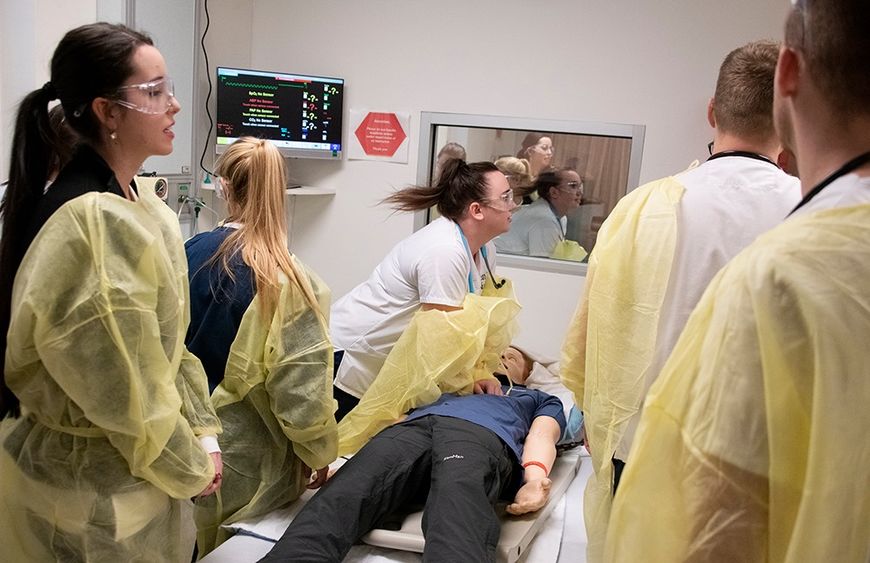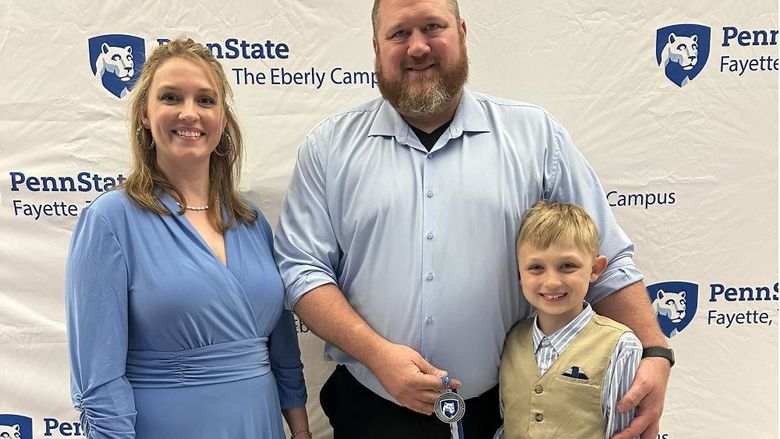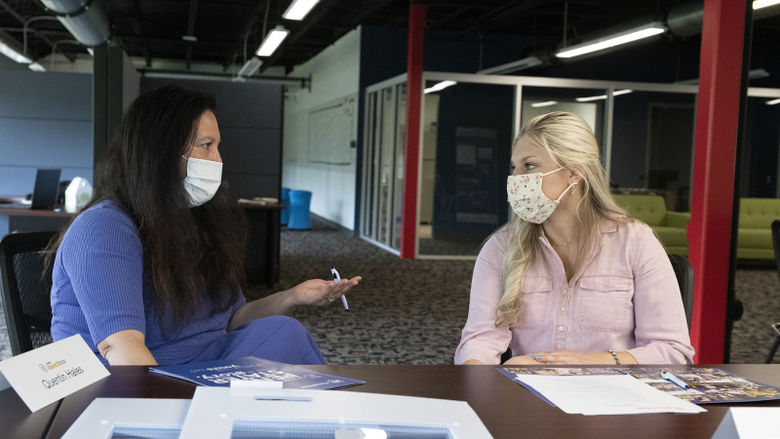
Nursing students Morgan Dewitt, Jordan Pascoe, Caitlyn Stashick, Lucas Klorczyk and Jonathan Klorczyk, left to right, treat “Harry,” a simulated patient.
LEMONT FURNACE, Pa. — The nursing program at Penn State Fayette, The Eberly Campus began the spring semester with an educational escape room exercise, which engaged students in the medical intervention of a critically ill simulated patient.
The exercise, called “Keep Harry Alive,” was originally facilitated by Michael Wystepek at Allegheny Health Network and adapted by Penn State Fayette faculty.
“Our objective was to help students remember what to do in the first five minutes of a code situation,” said Valerie Vanderhoff, assistant teaching professor of nursing. “Students were pre-educated prior to the exercise on priorities and actions that would need to be taken in a code situation.”
Twenty-eight senior-level nursing students participated in the escape room as part of their Clinical Simulation Day. Students were given 30 minutes to treat “Harry,” a simulated patient about to be discharged from an acute care facility, who turned unresponsive suddenly. The room was set up in a linear fashion so that students had to solve one problem at a time to provide proper care. A debrief followed the exercise.
Sara Grimplin, a senior nursing student from Vanderbilt, Pennsylvania, found the activity exciting.
“The escape room was a new and innovative way to make simulations less intimidating,” she said. “It still required the necessary communication skills between members of the team and knowledge of the patient’s diagnosis and treatment. As we got steps in the simulation correct, we were rewarded with new clues and progressed, which boosted confidence. I would love to have more escape room opportunities in the future.”





